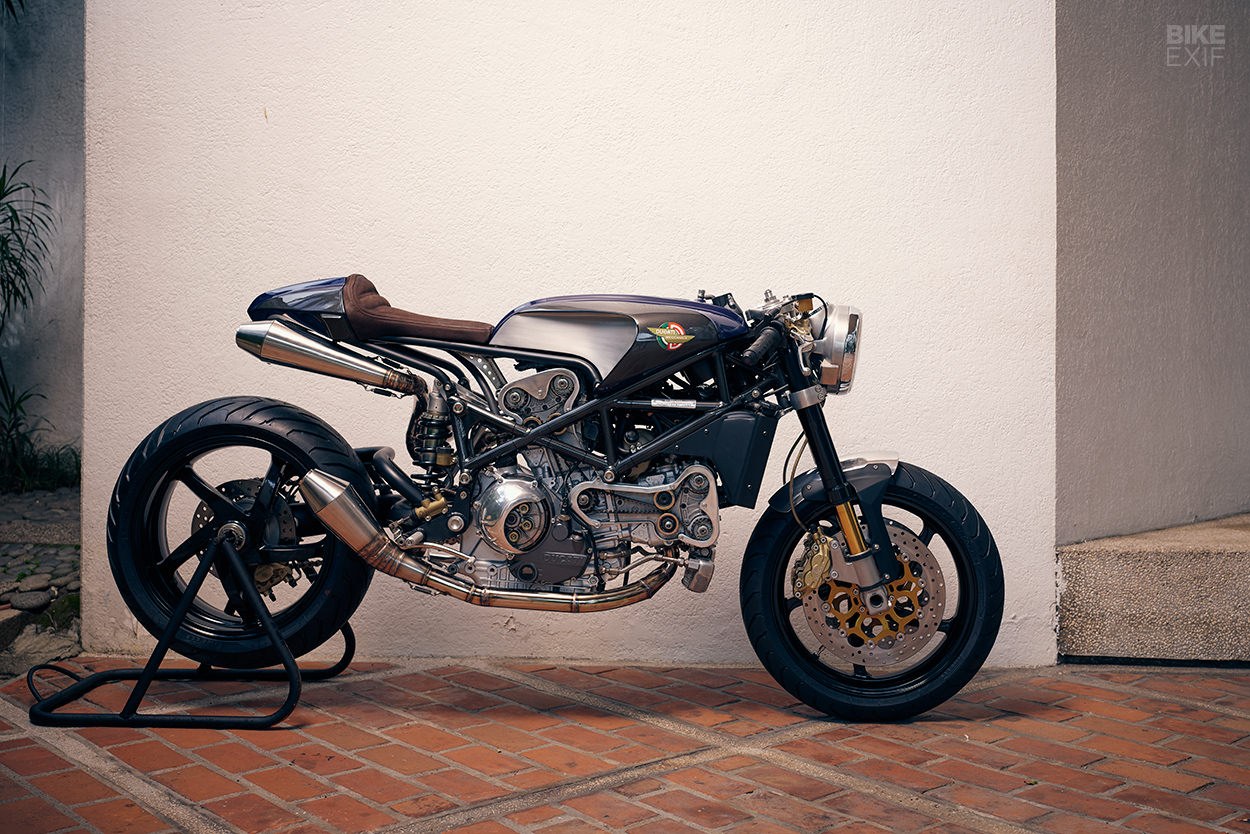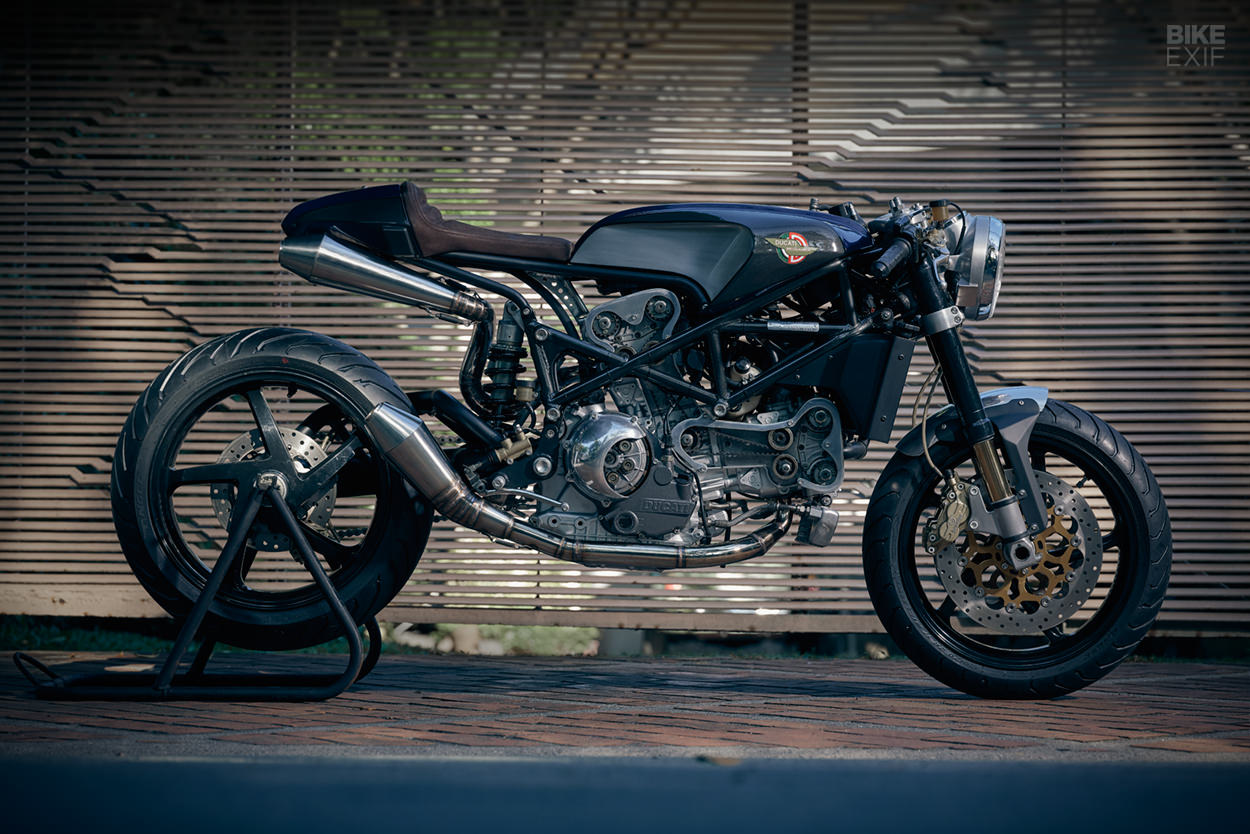
The Ducati Monster is one of the best-selling motorcycles in Europe. It’s been around for over a quarter of a century, and some 300,000 have been sold worldwide since 1993.
So why don’t we see more custom Monsters? Probably because the bike is so good straight out of the box, and almost everyone loves the looks bestowed upon it by Miguel Galluzzi. It doesn’t matter whether you have a humble mid-90s M600 or the latest 160 hp Testastretta-powered 1200 R—the stance and proportions are instantly recognizable.
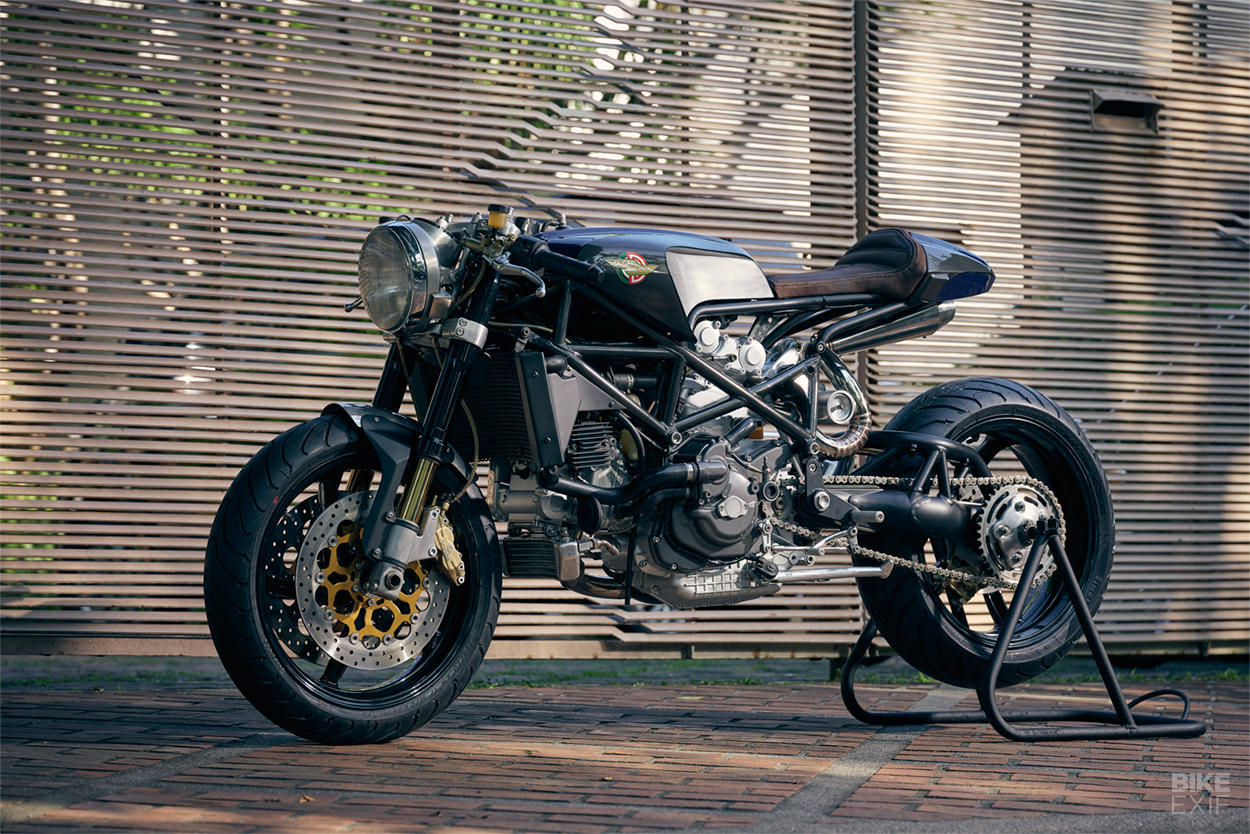
Benjie’s Café Racer are one of the few builders to tackle a Monster. Owner Benjie Flipprboi is based in New Jersey, but his latest creation can hold its own against any custom Duc to come from a high-end European shop.
“We really lucked out with ‘Angalore’,” Benjie says. “It started out as a 2007 Ducati S4R with less than 2,000 miles. It had a 90s-era color scheme, with burnt orange accents on the gas tank and wheels.”
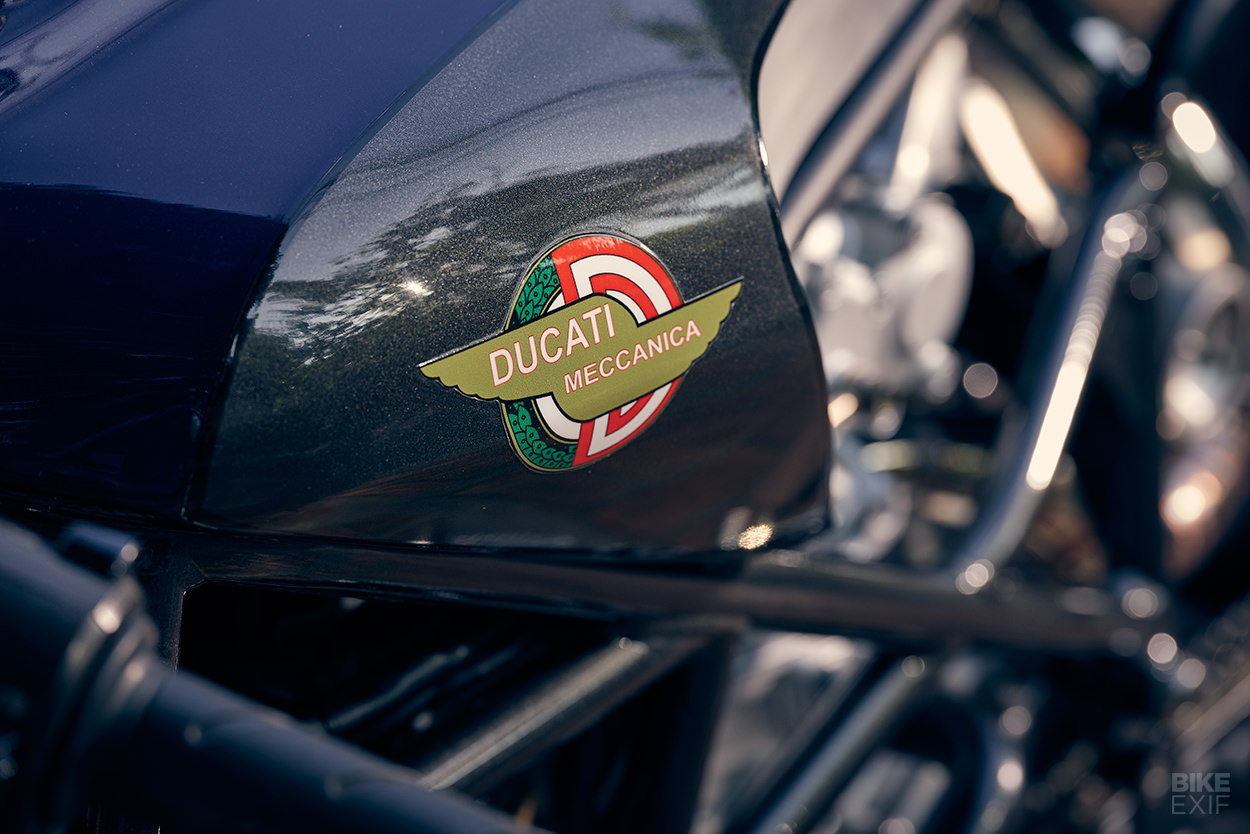
BCR’s client was somewhat hesitant. “They often reminded us that this bike was their baby,” says Benjie. The worries were unfounded: BCR have turned out a stunning café racer, stripped to the bone and ready for some serious action.
The mechanicals are unchanged: with 130 hp on tap, and kit like fully adjustable USD Showa forks and Brembo brakes, it isn’t worth messing with a high-end Monster.
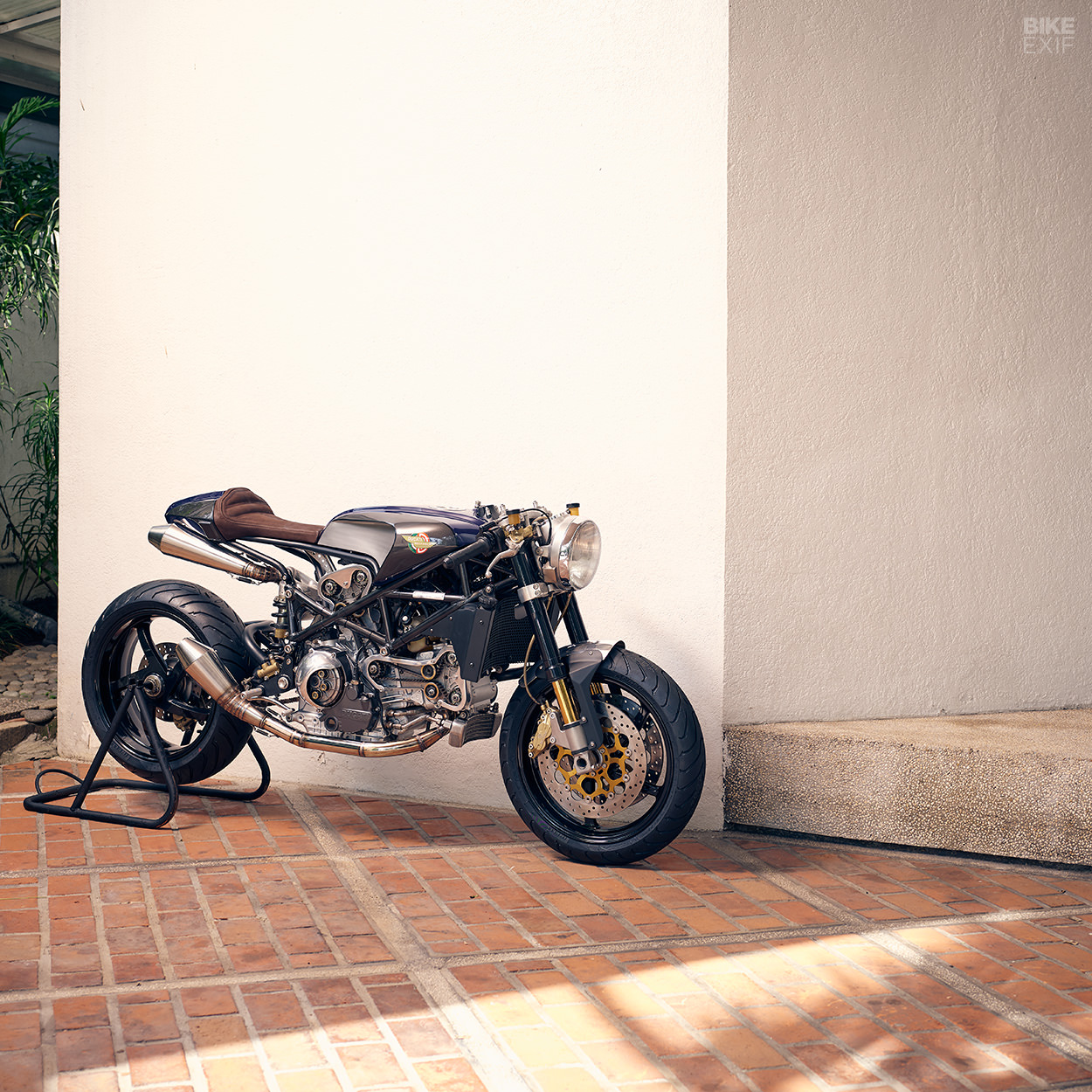
“During our first meeting, we explained to our client that we were looking to chop the frame and ditch 90% of the stock bodywork. But the client was defensive of their bolt-on, carbon fiber-toting child, and requested a render of the finished piece.”
Benjie admits that he’s not the best at drawing, and was reduced to gesturing with his hands to portray the lines and the profile of the frame—“Carving waves in the air,” as he puts it.
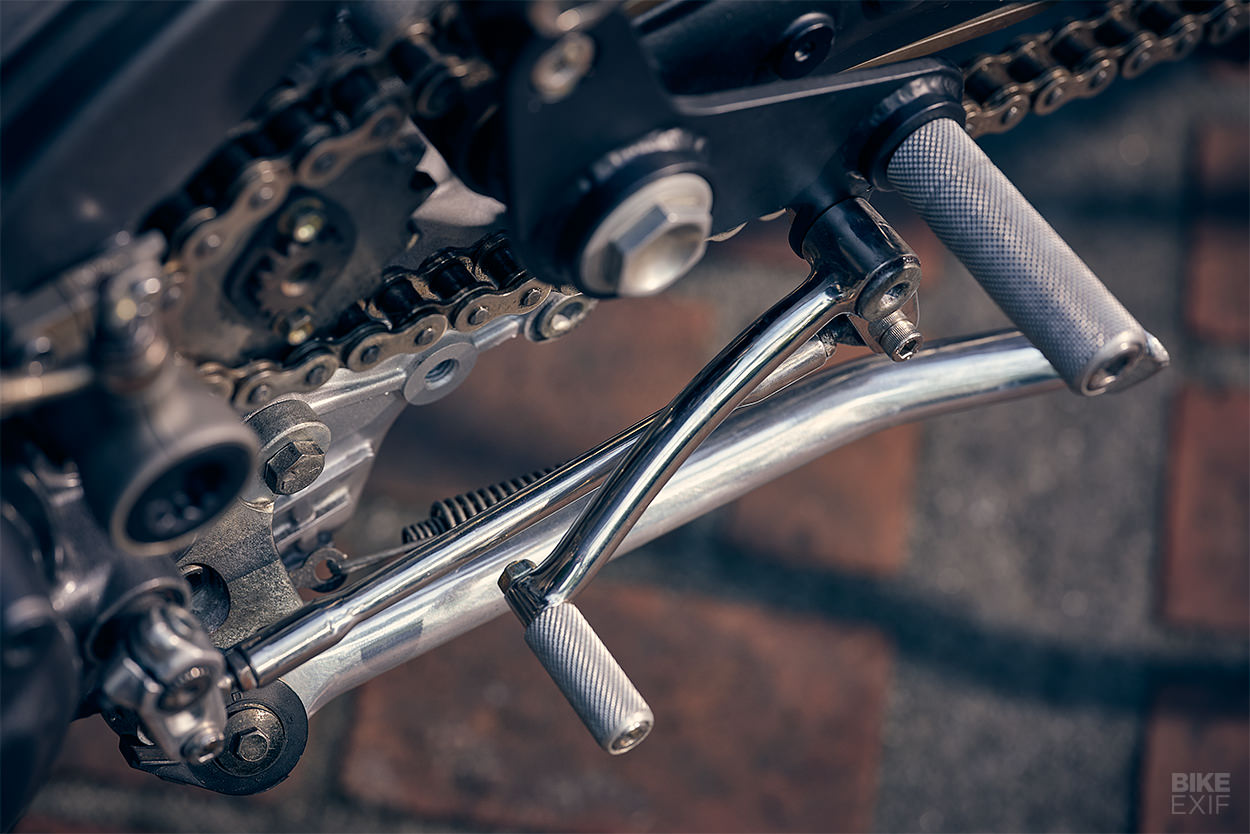
In the end, the obvious skill and passion of the BCR crew helped the client settle down, and they sanctioned the project. “They gave us full creative freedom, with one caveat: ‘Do whatever you want. My only request is that you paint it anything but yellow!’”
When BCR do a full custom build, they generally start with the gas tank. But with modern donor bikes, they start by making a completely new rear subframe.
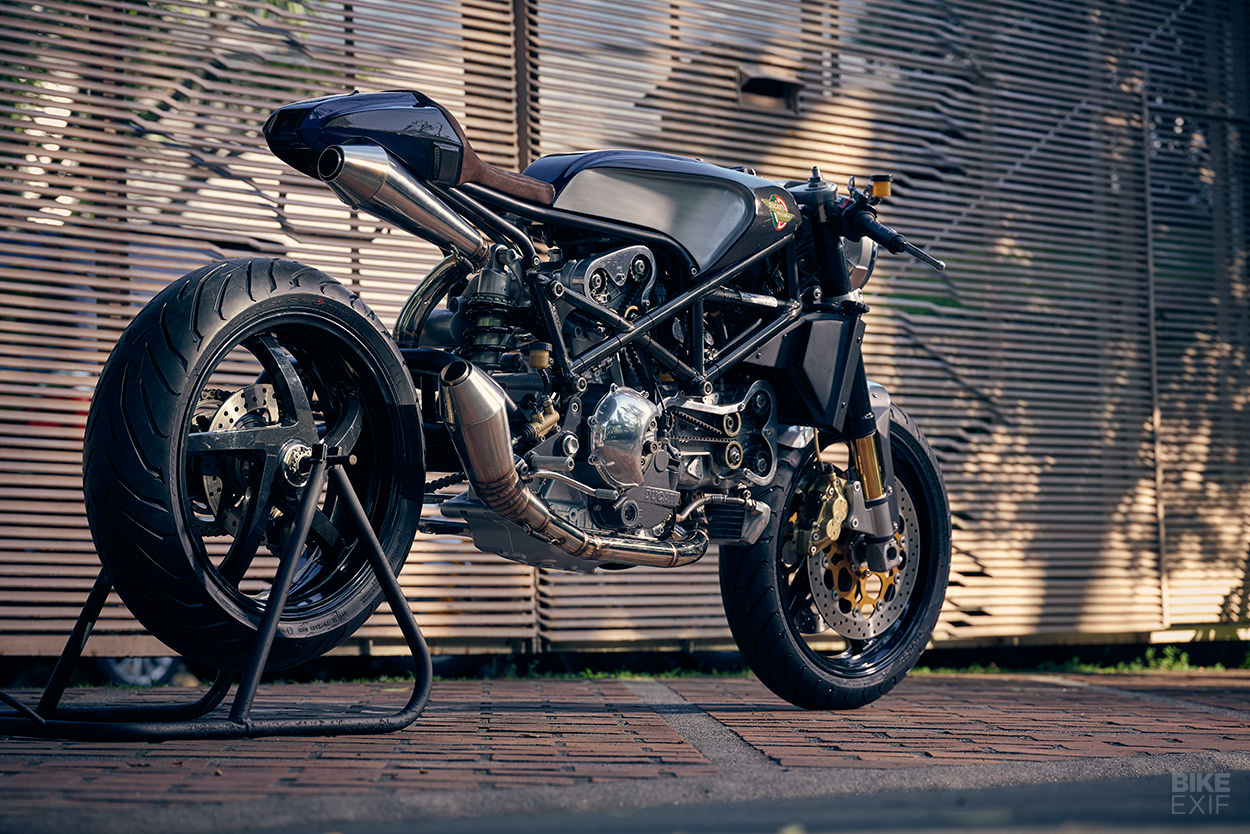
“To showcase the signature Ducati trellis frame, we left the front part of the stock frame and fabricated a more subtle rear subframe to complement it,” says Benjie. “For a more aggressive feel, we shortened the subframe and positioned it at a slight angle.”
The tank and seat came next. “We wanted something that looked like it was racing toward horizons, even at a full stop. Maintaining the visual theme set by the trellis frame, we shaped the new aluminum tank like the tip of an arrow in flight.”
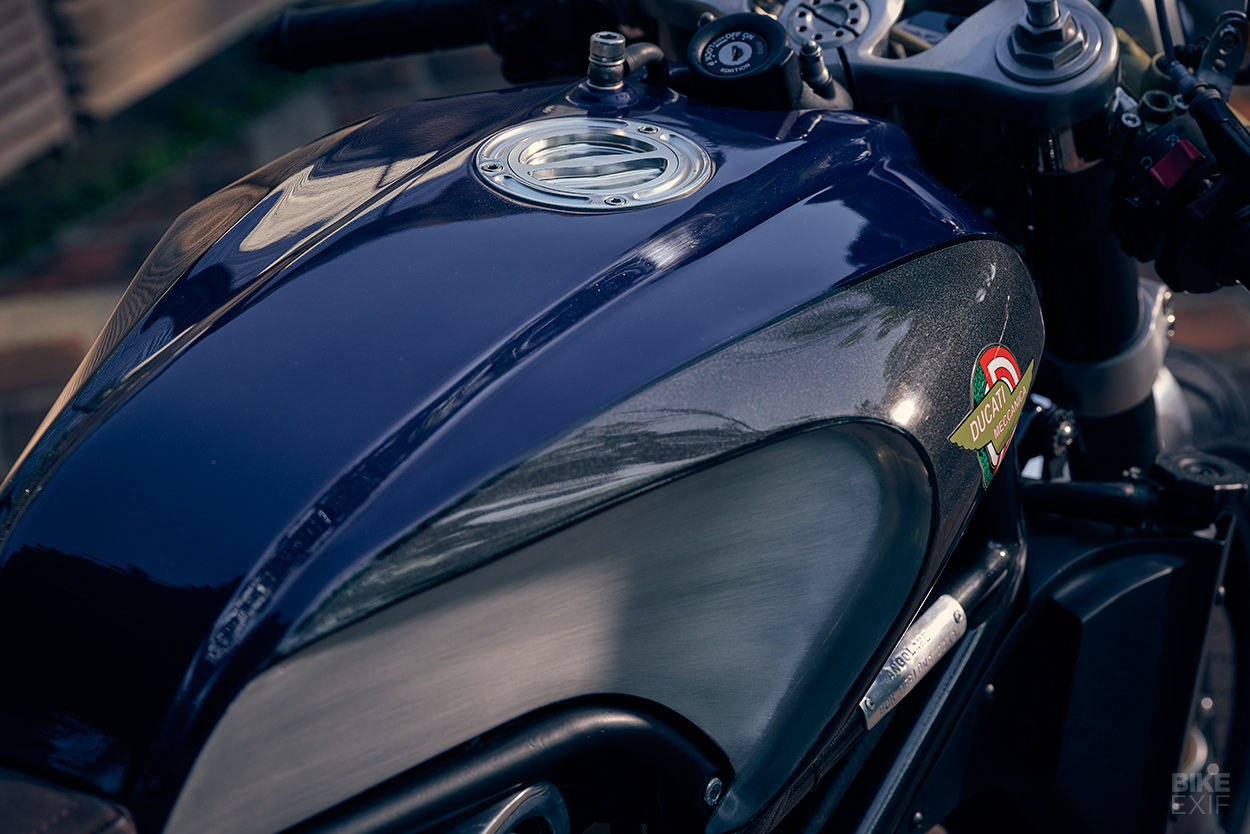
The tank is low, with sharp corners, and shaped at the bottom to follow the contours of the new subframe. Knee indents add extra detail.
There’s also a new seat pan, cowhide upholstery on the padding, and a dark, recessed square tail light at the back—similar to the double square light found on the Ducati 996, a bike with the same 998 cc L-twin as the S4R Monster.
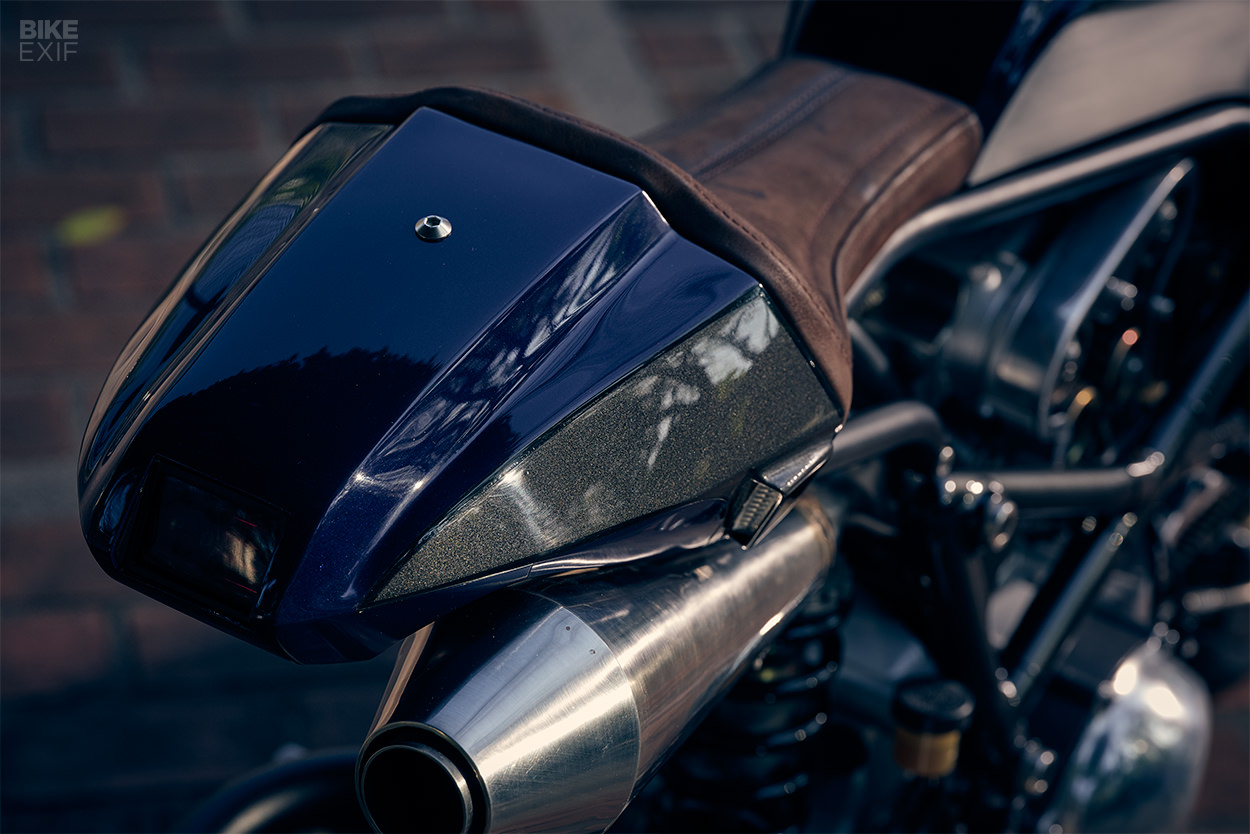
BCR didn’t want the rear turn signals to stick out, so they’ve added small scoops on the sides of the tail unit that house bright yellow LEDs. And there’s a very neat little notch on the right side of the seat to clear the high-mounted exhaust muffler.
Another major part of the S4R that dictates its attitude is the exhaust. The Ducati originally had a bolt-on performance exhaust from Arrow, which looked perfectly fine—but BCR pitched a one-off bike.
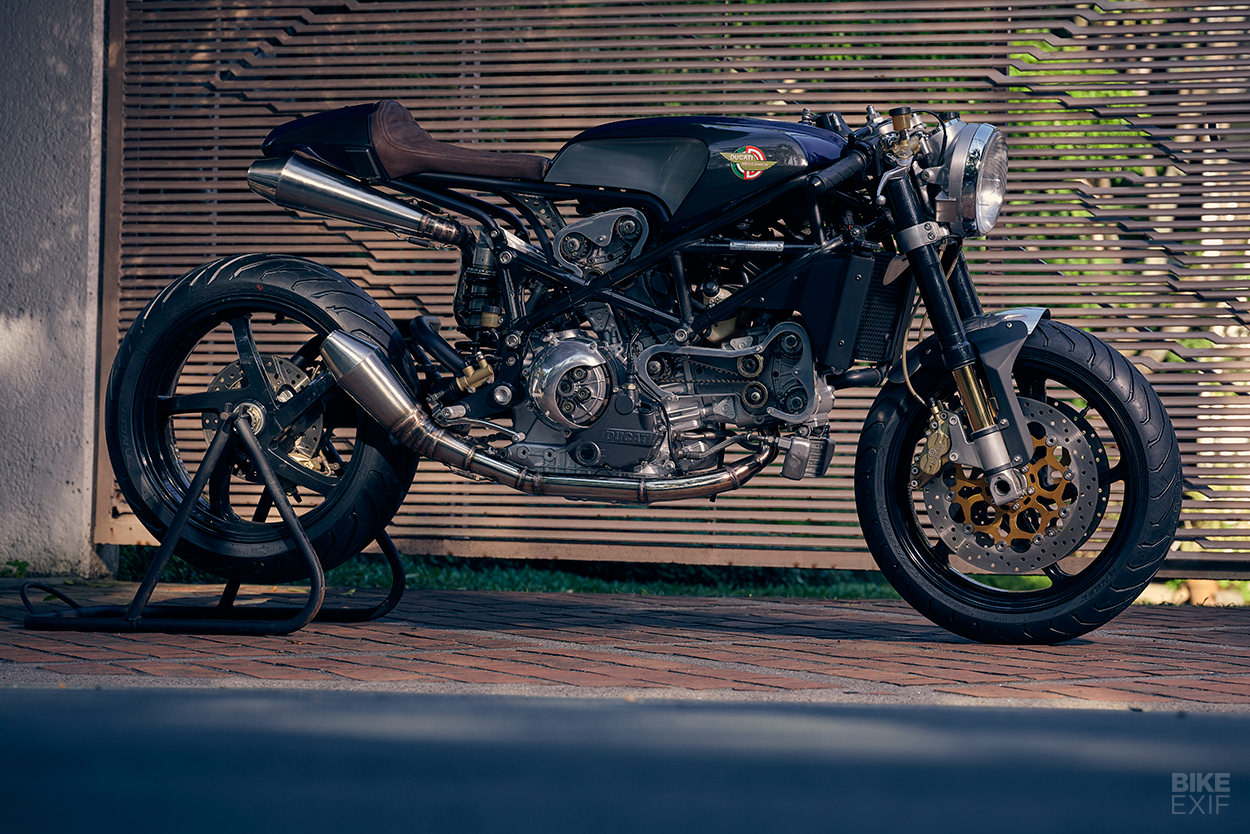
“We made our own exhaust out of stainless steel, building a 2-into-2 setup,” says Benjie. “We topped it off with a pie-cut setup on the bends: one routed under the seat, and the other routed under the motor, exiting out past the right-side footpeg.”
All the complex engineering of the S4R is on display here, so BCR decided to keep things simple up front. They’ve ditched the stock gauges, installed a custom speedo with a built-in tach, and fabricated an aluminum headlight bucket that also houses the gauge.
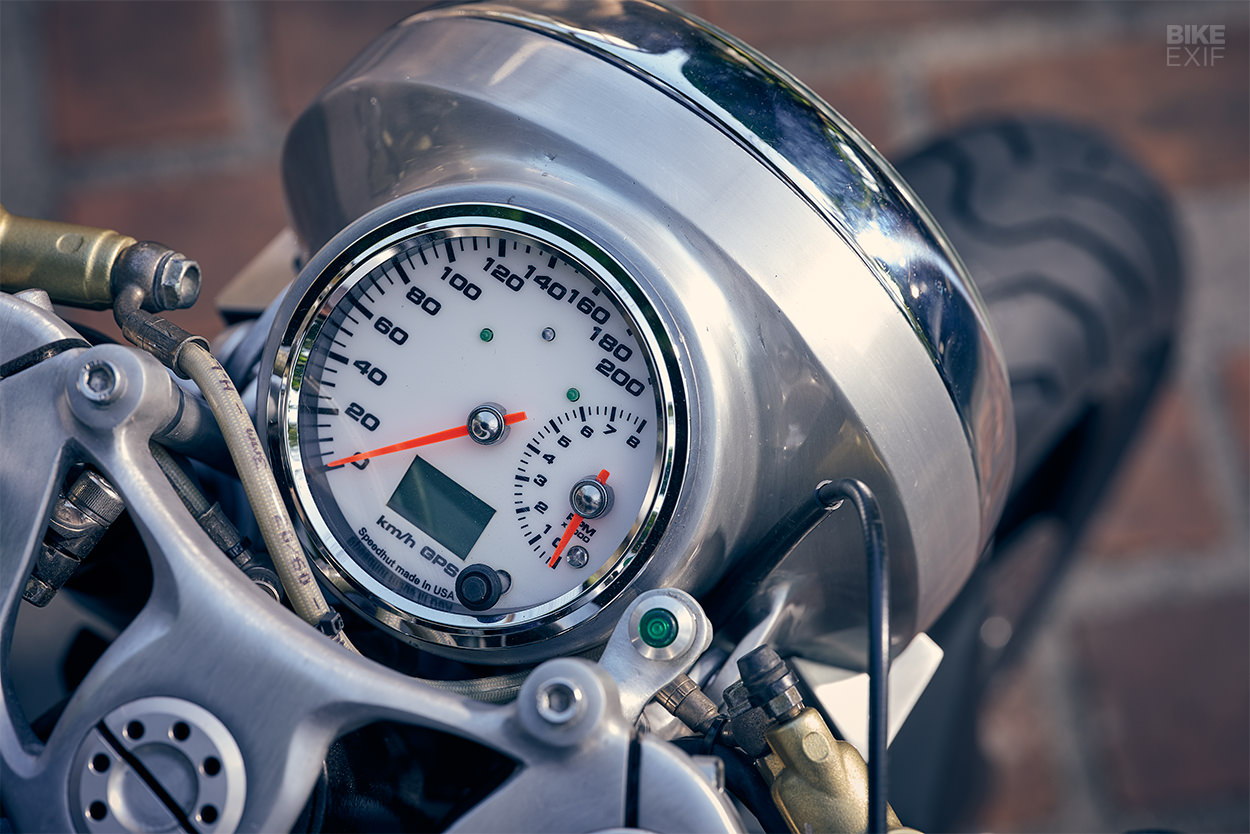
To mirror the setup at the rear, front turn signal LEDs are tucked inside stainless steel scoops mounted on the sides of the bucket.
BCR fired up the lathe to finish off the S4R, creating clip-on handlebars out of stainless steel, and new footpegs and foot controls. They dressed up the engine with a custom timing belt cover and clutch shield, plus vented side covers for the radiator, and hammered out a new front fender.
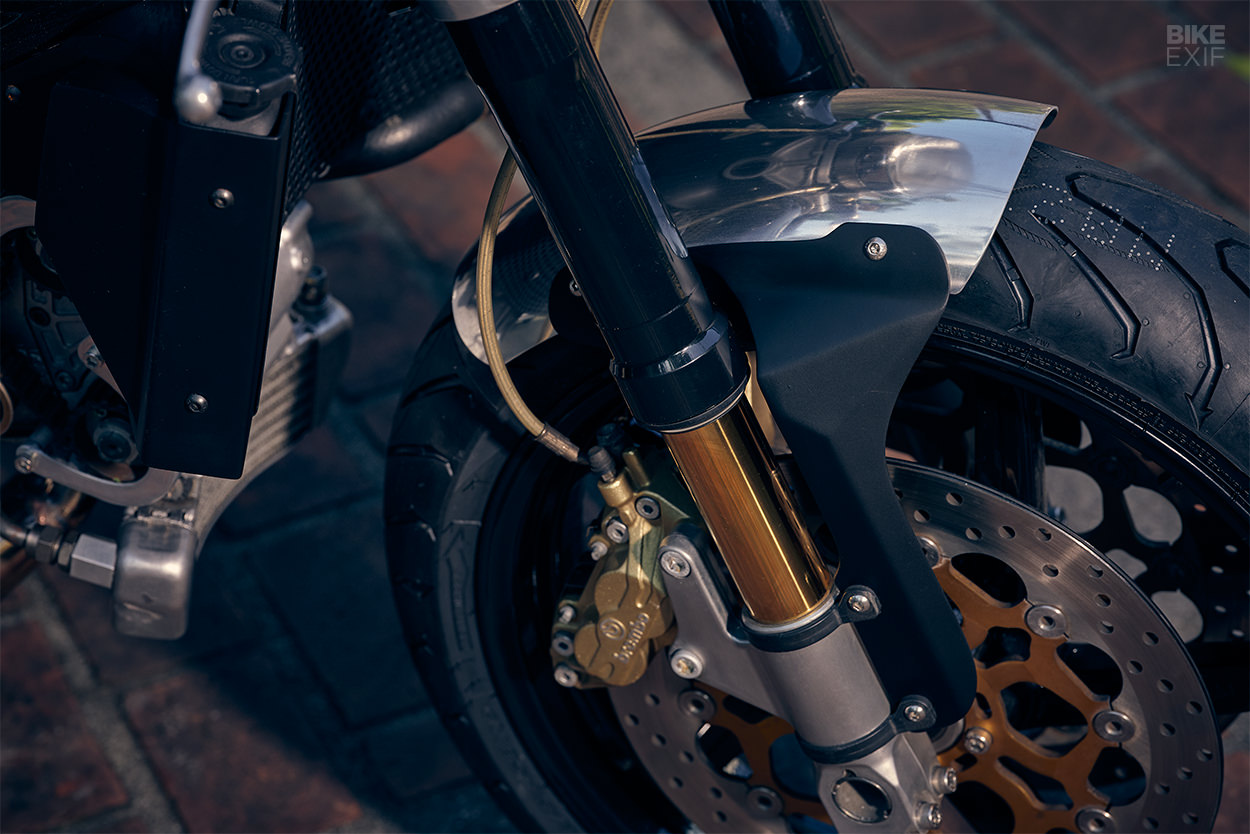
“In the end, after all the work was done, the only problem we had was that the bike wasn’t ours,” says Benjie ruefully.
We hope the client is pleased: we reckon Benjie and the BCR crew have rewarded his faith handsomely.
BCR Designs | Facebook | Instagram | Images by Dante Dizon and Ben Chan
